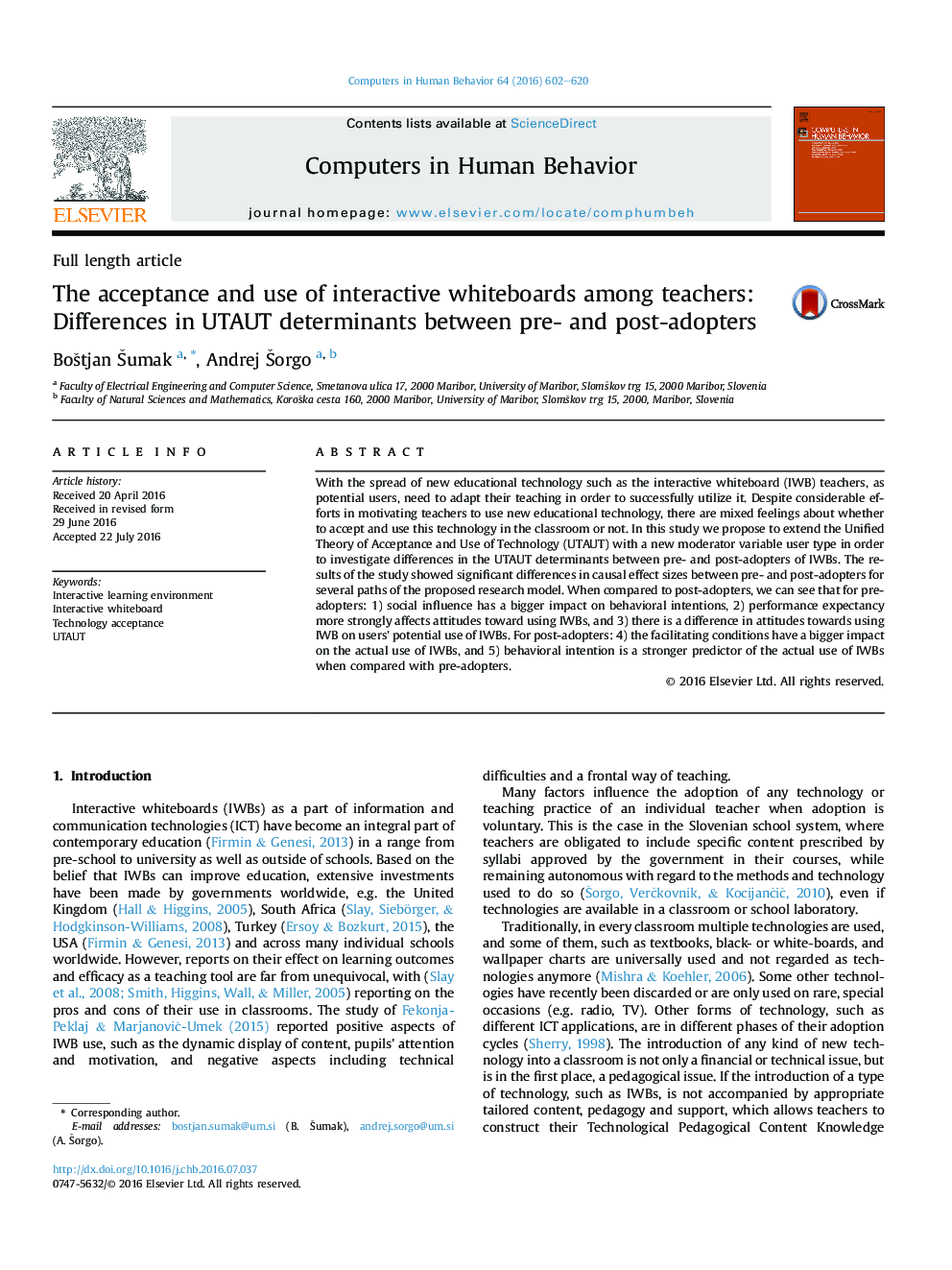| Article ID | Journal | Published Year | Pages | File Type |
|---|---|---|---|---|
| 6836645 | Computers in Human Behavior | 2016 | 19 Pages |
Abstract
With the spread of new educational technology such as the interactive whiteboard (IWB) teachers, as potential users, need to adapt their teaching in order to successfully utilize it. Despite considerable efforts in motivating teachers to use new educational technology, there are mixed feelings about whether to accept and use this technology in the classroom or not. In this study we propose to extend the Unified Theory of Acceptance and Use of Technology (UTAUT) with a new moderator variable user type in order to investigate differences in the UTAUT determinants between pre- and post-adopters of IWBs. The results of the study showed significant differences in causal effect sizes between pre- and post-adopters for several paths of the proposed research model. When compared to post-adopters, we can see that for pre-adopters: 1) social influence has a bigger impact on behavioral intentions, 2) performance expectancy more strongly affects attitudes toward using IWBs, and 3) there is a difference in attitudes towards using IWB on users' potential use of IWBs. For post-adopters: 4) the facilitating conditions have a bigger impact on the actual use of IWBs, and 5) behavioral intention is a stronger predictor of the actual use of IWBs when compared with pre-adopters.
Related Topics
Physical Sciences and Engineering
Computer Science
Computer Science Applications
Authors
Boštjan Šumak, Andrej Šorgo,
